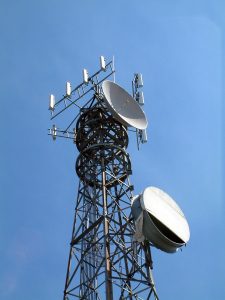In a recent case – Commonwealth v. Fredericq – the Supreme Judicial Court affirmed the allowance of the defendant’s motion to suppress the fruits of the police action tracking the location of a cell phone for six days.
The basic facts were as follows. A homicide investigation led to the return of a murder indictment against a man named Dorisca. In the course of looking for Dorisca, the police acquired information that his best friend (Cassio) and other men, including the defendant, were driving to Florida in a Toyota SUV to purchase drugs. In addition, the police acquired Cassio’s cellular telephone number. “[T]he Commonwealth sought and obtained a court order, pursuant to 18 U.S.C. §2703(d) (2006), to require the cellular service provider to produce records for” that cell phone. “[T]the cellular service provider furnished [the police] with records showing that the defendant was the subscriber for [the cell phone], and that the defendant resided in an apartment in Brockton…. The cellular service provider used ‘ping’ technology to send radio signals to the … phone and record the … location of the … cell towers with which [it] communicated.” The provider “sent the resulting CSLI [cell site location information] records by e-mail” to the police every fifteen minutes. In this manner, the police, without a warrant, tracked the Toyota for six days, in the course of which it travelled to Florida and back to the defendant’s address in Brockton. The police went to that address, a multiunit house. On the third floor, they knocked on a bedroom door; the defendant answered and indicated that he resided there. The officers “informed the defendant … that [a] murder suspect might be in the building[,]” and that they “had information that the defendant ‘had just gone down to Florida and purchased a large amount of narcotics and … [was] possibly storing it [in his residence].’ The defendant … signed a form giving his consent for a search. During that search, the police found $2,200 in cash in the defendant’s bedroom and … two ‘bricks’ of cocaine” “in [a] … crawl space across from [his] bedroom.” After the defendant was indicted for cocaine trafficking, he moved to suppress the fruits of the search. The motion was allowed and the Commonwealth filed an interlocutory appeal. “The Commonwealth concede[d] that the CSLI tracking of the cellular telephone in this case was unlawful because it was not authorized by a search warrant. But the Commonwealth argue[d] that the motion to suppress should nonetheless have been denied because (1) the defendant had no standing to challenge the tracking of a cellular telephone that was registered in his name, but used solely by Cassio; (2) … the cocaine was not seized during a constitutional search because the defendant lacked any expectation of privacy in the crawl space where it was found; and (3) the evidence obtained during the search was sufficiently attenuated from the illegal [CSLI] tracking because of the defendant’s consent to the search, thus ‘purging’ the search of its taint.”
In its decision addressing each of the Commonwealth’s three arguments, the SJC first opined that the defendant had standing because he was “a passenger [in] the vehicle whose location was effectively being continually tracked through CSLI monitoring of the target telephone” and the tracking intruded on the defendant’s reasonable expectation of privacy. The Court next rejected the Commonwealth’s contention that no constitutional search of the crawl space occurred because, purportedly, “the defendant had no reasonable expectation of privacy in the crawl space.” The Court stated that “[e]vidence may be suppressed as fruit of the poisonous tree even if it is found in a place where the defendant has no reasonable expectation of privacy.” Finally, the Court “conclude[d] that the defendant’s consent to a search of his residence did not purge the seizure from the taint of the illegal CSLI search, where the consent was obtained through the use of information obtained from [the illegal] search.” Here, “the defendant’s consent was obtained immediately after [the police officers] informed him that [they] knew he” had just travelled to Florida to purchase drugs, “information that was intimately intertwined with the information gleaned from the unlawful CSLI tracking.” The Court stated, “[W]e cannot eliminate the possibility that the [defendant’s] grant of consent was influenced by the information [the officers] had just told him, which might have caused him to believe that the refusal to consent would be futile because it would simply trigger an application for a search warrant of his home.”
If you or a loved one is currently charged with a crime that involves evidence obtained as a result of a warrantless search of a cellular phone, or cellular telephone records, you need a defense attorney make sure that illegally obtained evidence is not used against you at trial. Attorney Daniel Cappetta is an experienced and skilled attorney who has litigated numerous motions to suppress, and knows how to make sure his client’s constitutional rights are protected. Call him for a free consultation today.
 Massachusetts Criminal Lawyer Blog
Massachusetts Criminal Lawyer Blog


